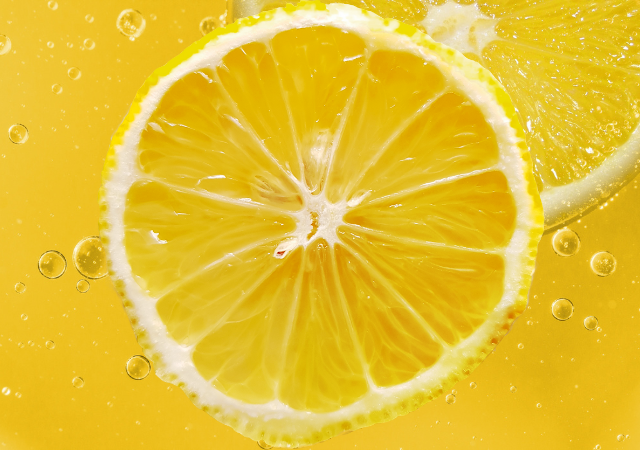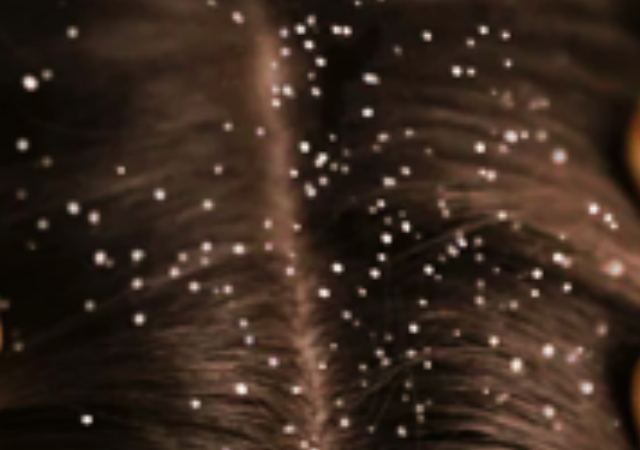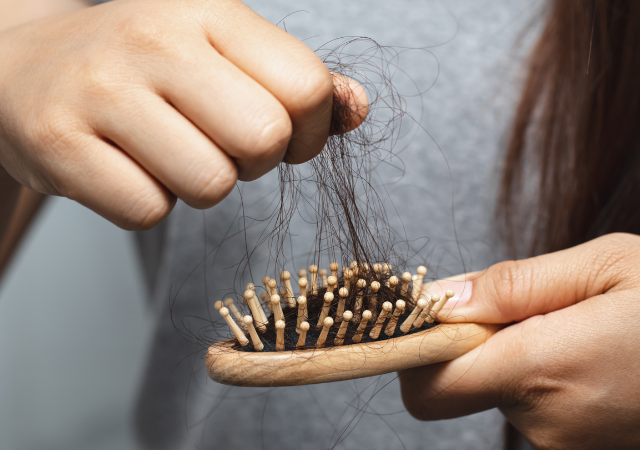The Lemon Hair Hack That Stops Dandruff and Saves Your Hair
Introduction
Are you tired of dealing with pesky dandruff flakes and the constant worry of hair fall? If so, you’re not alone. Many people are constantly on the lookout for effective remedies to combat these common hair issues. In the quest for beautiful, healthy hair, we often turn to natural ingredients, and one such kitchen staple that has gained popularity for its purported hair-saving properties is lemon.
“The Lemon Hair Hack That Stops Dandruff and Saves Your Hair” delves into the intriguing world of using lemon as a potent hair care remedy. Lemon’s reputation for its natural acidity, vitamins, and antioxidants has piqued the curiosity of hair enthusiasts seeking an accessible solution to their hair woes. But does this citrus fruit truly possess the magical power to eliminate dandruff and reduce hair fall? In this article, we will explore the science behind lemon’s potential benefits, how to use it effectively, and whether it lives up to the hype as a game-changer in the battle against hair problems. Get ready to unlock the secrets of lemon for hair care and discover whether it can truly be your hair’s savior.
-
Lemon: A Natural Wonder

Lemon, with its tangy aroma and versatile uses in cooking and cleaning, also boasts a reputation for being a potent natural remedy for various health and beauty concerns. Its high vitamin C content, along with other nutrients and antioxidants, makes it an appealing choice for those seeking to improve the health of their skin and hair.
Before we dive into the specifics of using lemon for hair care, let’s first understand the two common hair problems that it aims to combat: dandruff and hair fall.
-
Understanding Dandruff and Hair Fall

Dandruff is a prevalent scalp condition characterized by the shedding of white, flaky skin from the scalp. It often leads to itchiness and discomfort. While the exact cause of dandruff can vary from person to person, common factors include excessive oil production, the presence of a yeast-like fungus called Malassezia, and sensitivity to certain hair care products.

Hair fall is a natural process in which we shed old hair to make way for new growth. On average, it’s normal to lose around 50 to 100 hairs per day. However, excessive hair fall can be distressing and may be caused by a variety of factors, including genetics, hormonal changes, poor nutrition, stress, and the use of harsh hair care products.
-
Lemon as a Hair Care Remedy

Nutritional Content of Lemon: Lemons are a rich source of vitamin C, which is known for its antioxidant properties. Antioxidants help protect the hair and scalp from damage caused by free radicals. In addition to vitamin C, lemons also contain vitamins B and E, as well as minerals like calcium, potassium, and magnesium. These nutrients can contribute to healthier hair and scalp.
Lemon’s Potential Benefits for Hair:
- Scalp Exfoliation: The natural acidity of lemon can help exfoliate the scalp, removing dead skin cells and excess oil. This can promote a healthier scalp environment and potentially reduce dandruff.
- pH Balancing: Lemon’s acidic nature can also help balance the scalp’s pH levels. An imbalanced pH can contribute to scalp issues, including dandruff.
- Dandruff Reduction: Lemon’s antimicrobial properties may help combat the overgrowth of Malassezia, a common cause of dandruff.
- Strengthening Hair Strands: The vitamins and minerals in lemon can nourish the hair strands, making them stronger and less prone to breakage.
-
The Lemon Hair Treatment Process
To harness the potential benefits of lemon for your hair, follow these steps:
Preparing the Lemon Solution:
You can use fresh lemon juice or bottled lemon juice, although fresh lemon juice is often preferred for its purity. Dilute the lemon juice with an equal amount of water to reduce its acidity, making it gentler on the scalp. You can also add a teaspoon of honey or a few drops of essential oils like lavender or tea tree oil for added benefits and a pleasant scent.
Application Method:
- Begin by parting your hair and applying the diluted lemon juice directly to your scalp. Massage it gently with your fingertips for a few minutes to ensure even distribution.
- Once you’ve covered your scalp, you can also apply the lemon solution to the length of your hair. This can help condition and strengthen your hair strands.
- Leave the lemon solution on for about 15-20 minutes. Avoid exposing your hair to direct sunlight during this time, as lemon juice can react with sunlight and cause lightening of the hair.
- Rinse your hair thoroughly with lukewarm water. You can follow up with a mild, sulfate-free shampoo and conditioner.
Recommended Frequency:
It’s important to note that using lemon on your hair should be done in moderation. Excessive use can lead to scalp irritation and dryness. Most experts recommend using this treatment once a week or every two weeks to avoid potential side effects.
-
Does Lemon Really Help with Dandruff?
Scientific Evidence and Studies: While lemon’s potential benefits for dandruff are often touted, scientific research on this specific topic is limited. Most studies on natural remedies for dandruff focus on ingredients like tea tree oil and aloe vera. Lemon’s effectiveness in reducing dandruff may vary from person to person, and more research is needed to confirm its efficacy.
Anecdotal Evidence and Personal Experiences: Many individuals claim to have experienced positive results after using lemon for dandruff. They report reduced itching and flakiness. However, it’s essential to remember that anecdotal evidence may not be applicable to everyone, as individual responses to treatments can vary.
Potential Drawbacks and Risks:
- Scalp Irritation: Lemon’s acidity can be harsh on the scalp, leading to irritation, redness, or a burning sensation. It’s crucial to dilute the lemon juice and perform a patch test before applying it to your entire scalp.
- Hair Damage: Lemon juice can have a lightening effect on the hair, particularly when exposed to sunlight. If you have colored or chemically treated hair, using lemon may lead to undesirable color changes.
-
Addressing Hair Fall with Lemon
Can Lemon Prevent Hair Fall? While lemon’s benefits for dandruff are often discussed, its effectiveness in preventing hair fall is less clear. Hair fall can result from various underlying causes, including genetics, hormonal imbalances, and nutritional deficiencies. Lemon’s nutrient content may help support overall hair health, but it’s unlikely to be a standalone solution for addressing hair fall.
Complementary Measures for Hair Loss Prevention:
- Healthy Diet and Nutrition: A balanced diet rich in vitamins, minerals, and protein is essential for strong and healthy hair. Include foods like lean meats, eggs, nuts, and leafy greens in your diet.
- Stress Management: Chronic stress can contribute to hair fall. Practicing stress-reduction techniques like meditation, yoga, or deep breathing exercises can help.
- Proper Hair Care Routine: Using gentle, sulfate-free shampoos and conditioners, and avoiding excessive heat styling and tight hairstyles can help prevent hair damage and breakage.
-
Other Natural Remedies for Dandruff and Hair Fall
While lemon is one option for addressing dandruff and hair fall, there are several other natural remedies to consider:
1. Tea Tree Oil: Tea tree oil is known for its antifungal properties and can be effective against dandruff-causing fungi. It’s often used in shampoos and DIY scalp treatments.
2. Aloe Vera: Aloe vera has soothing and moisturizing properties. Applying aloe vera gel to the scalp can help alleviate itchiness and reduce dandruff.
3. Neem Oil: Neem oil has antibacterial and antifungal properties, making it useful for dandruff control. Mix it with a carrier oil and apply it to your scalp.
4. Apple Cider Vinegar: Apple cider vinegar can help balance the pH of the scalp and reduce dandruff. Dilute it with water and use it as a final rinse after shampooing.
Conclusion (The Lemon Hair Hack That Stops Dandruff and Saves Your Hair)
In the quest for a natural remedy to combat dandruff and hair fall, the use of lemon has gained attention for its potential benefits. While lemon’s acidity, vitamins, and antioxidants make it a promising candidate for hair care, it’s essential to approach its use with caution. Scientific evidence on its efficacy for dandruff is limited, and individual responses may vary.
Before incorporating lemon into your hair care routine, consider performing a patch test and consulting with a dermatologist or trichologist, especially if you have a sensitive scalp or underlying scalp conditions.
Remember that maintaining healthy hair involves a holistic approach. In addition to any natural remedies you may try, ensure you’re eating a balanced diet, managing stress, and practicing proper hair care. Ultimately, while lemon may play a role in your hair care routine, it may not be the sole solution to dandruff and hair fall. It’s essential to balance natural remedies with professional advice for the best results in achieving healthy, beautiful hair.

My name is Rohit Vagh and I’m a content writer specializing in fashion and lifestyle. I have three years of experience in this field and have written various articles. My writing style is creative and engaging, and I strive to create content that resonates with my readers. I have a deep passion for fashion and am constantly researching the latest trends and styles to make sure my readers are up to date. I’m excited to continue my career in blogging, and I’m always looking for new opportunities in the fashion and lifestyle space.





